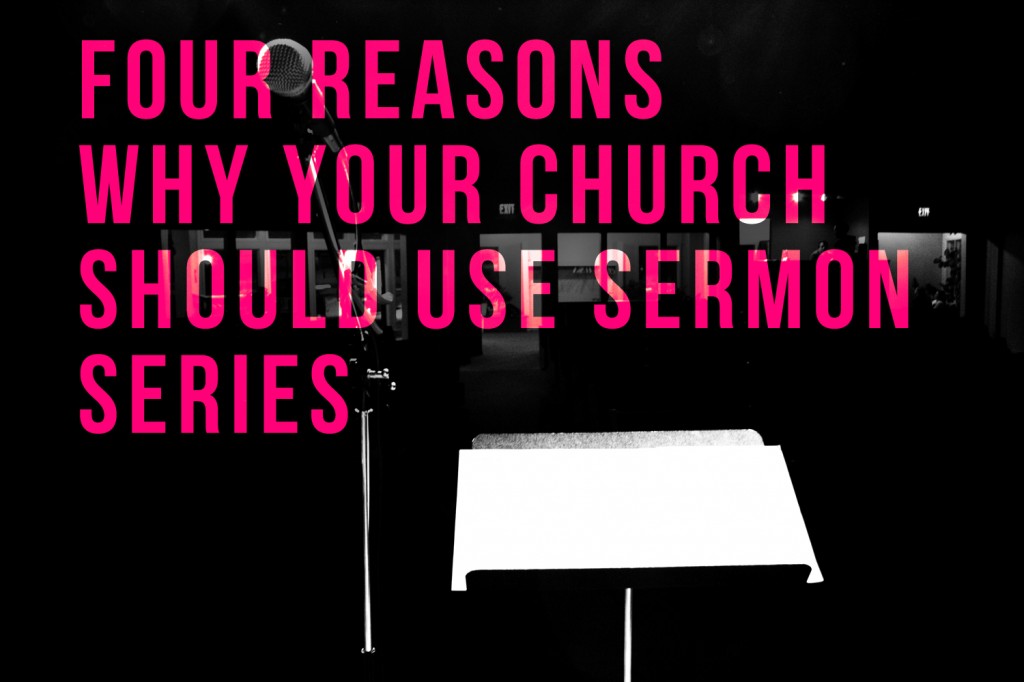
Photo by Tom Sodoge on Unsplash
In last week’s “The Best Books I read in 2018” blog, I mentioned Kate Bowler’s book Everything Happens for a Reason: And Other Lies I’ve Loved as one of my favorites of the year. The book moves so gracefully that I read it from cover to cover in one sitting. I don’t read many books this way because I’m not necessarily a fast reader. It also feels a little strange—almost disrespectful to the author—to knock books down like cups of punch. “I know you worked on this every night for two years, but I’m going to close it out while my wife catches up on This is Us.”
Anyways, I read a quote in the Preface that I felt profound and wanted to get it down here. In one section, Bowler discusses her work researching the prosperity gospel movement in American. She then mentions that what attracts so many to this distortion of Christianity is the order and “rules” it brings to pain.
But what gives the prosperity movement breadth and depth for many is its thorough accounting for the pain of life, and for the longing we have for restoration. Those Americans trapped in failing bodies or broken relationships or the painful possibility that their lives might never be made whole can turn to this message of hope. If it is a game—with rules for success that anyone can use—then maybe they can win (xvii).
I’ve written a good deal in the past about the prosperity gospel, so I won’t get into that here. But I do want to highlight how Bowler describes people within the movement. They aren’t monsters or brutes or whatever word you might use to describe a terrible person. They are people looking for hope. Bowler’s words could only come from someone who knows and cares for these people (she attended a prosperity gospel church while researching her very good book Blessed).
When I read this section, I instantly thought of a Twitter thread from author Beth Moore. The thread started with a list of the top ten books sold through Christian retail in November. Sadly, most of these books contained either weak theology or theology used to support a version of the prosperity gospel. One person (rightly) lamented. Moore responded with this:
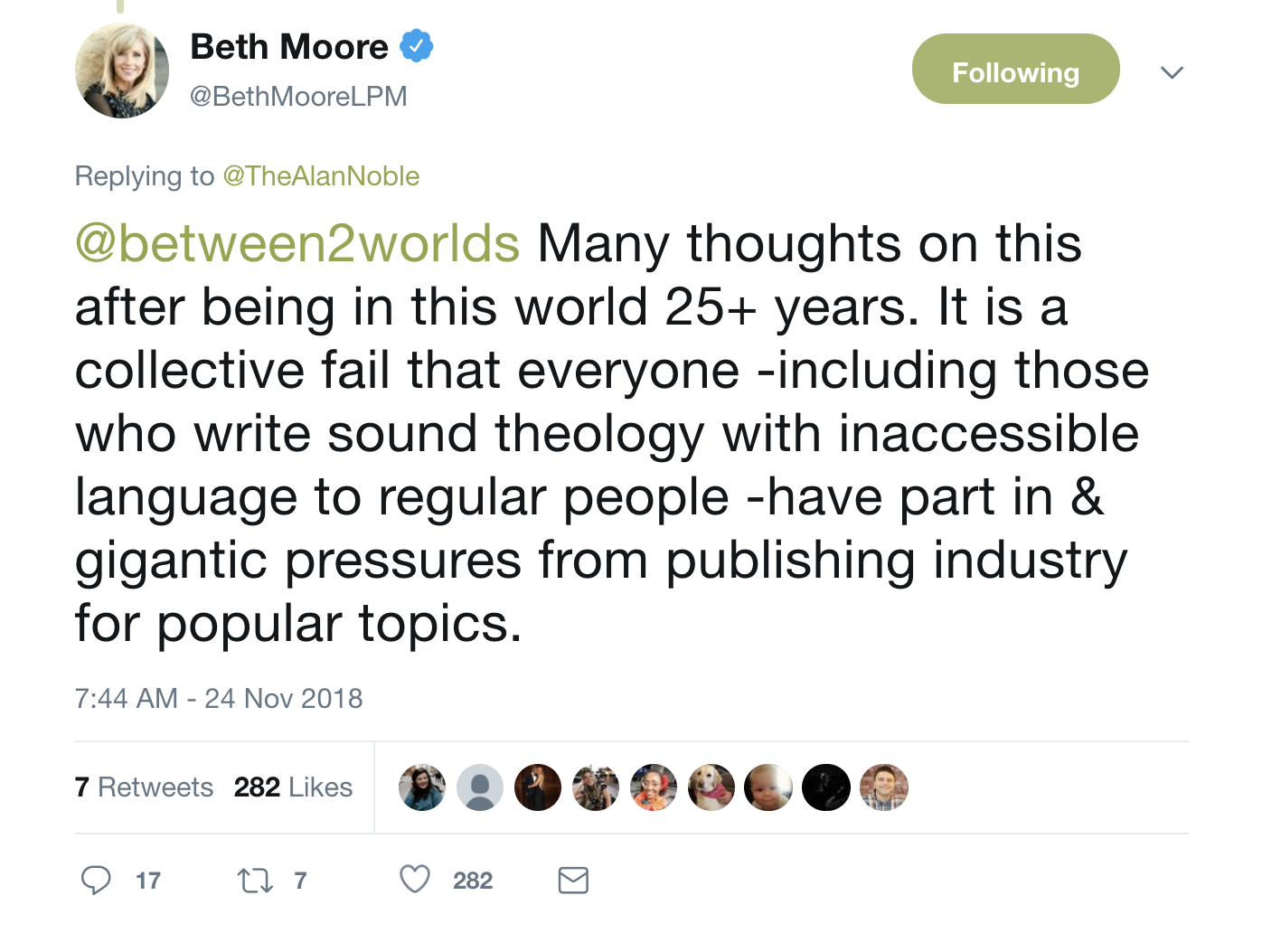
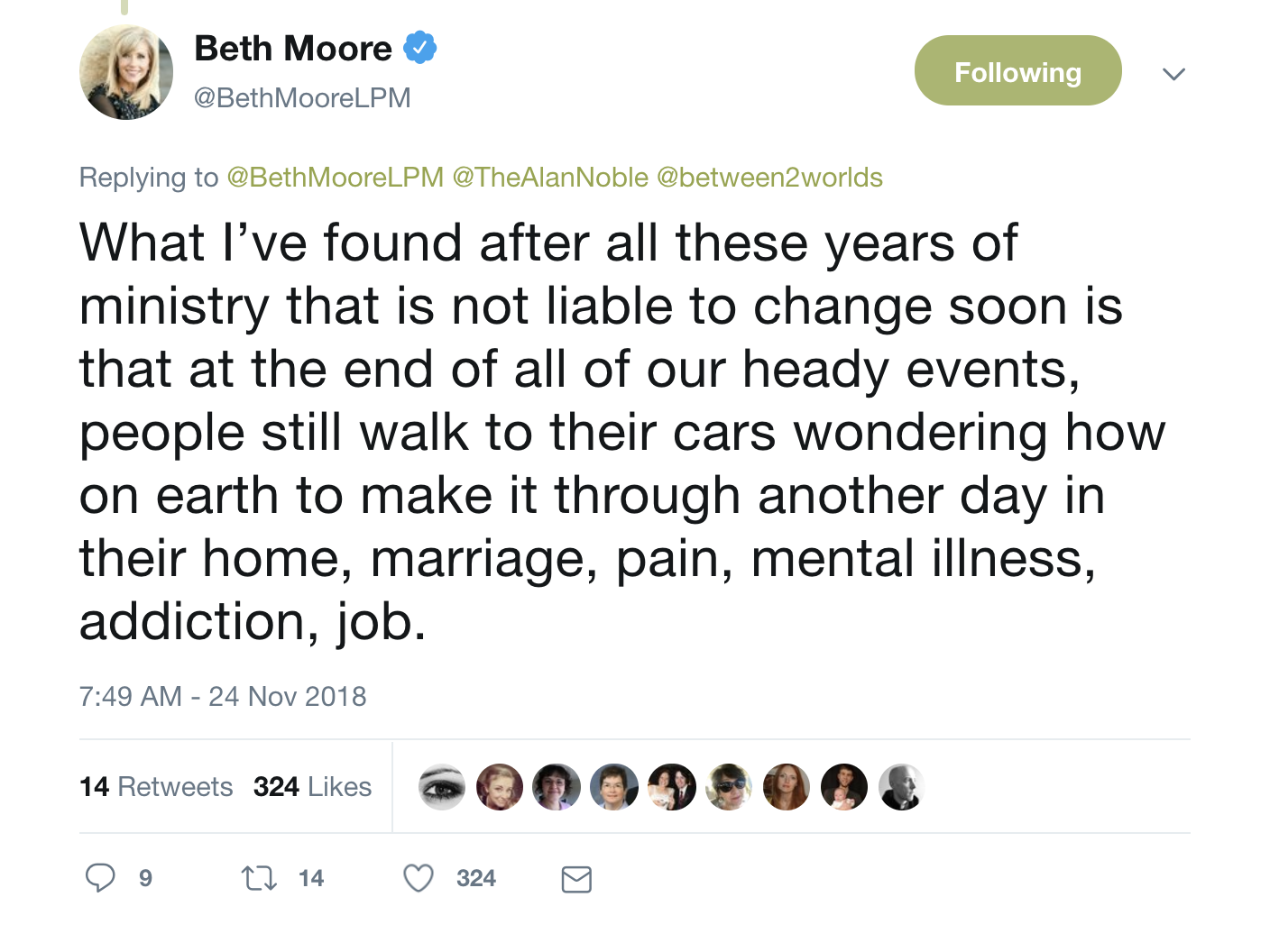
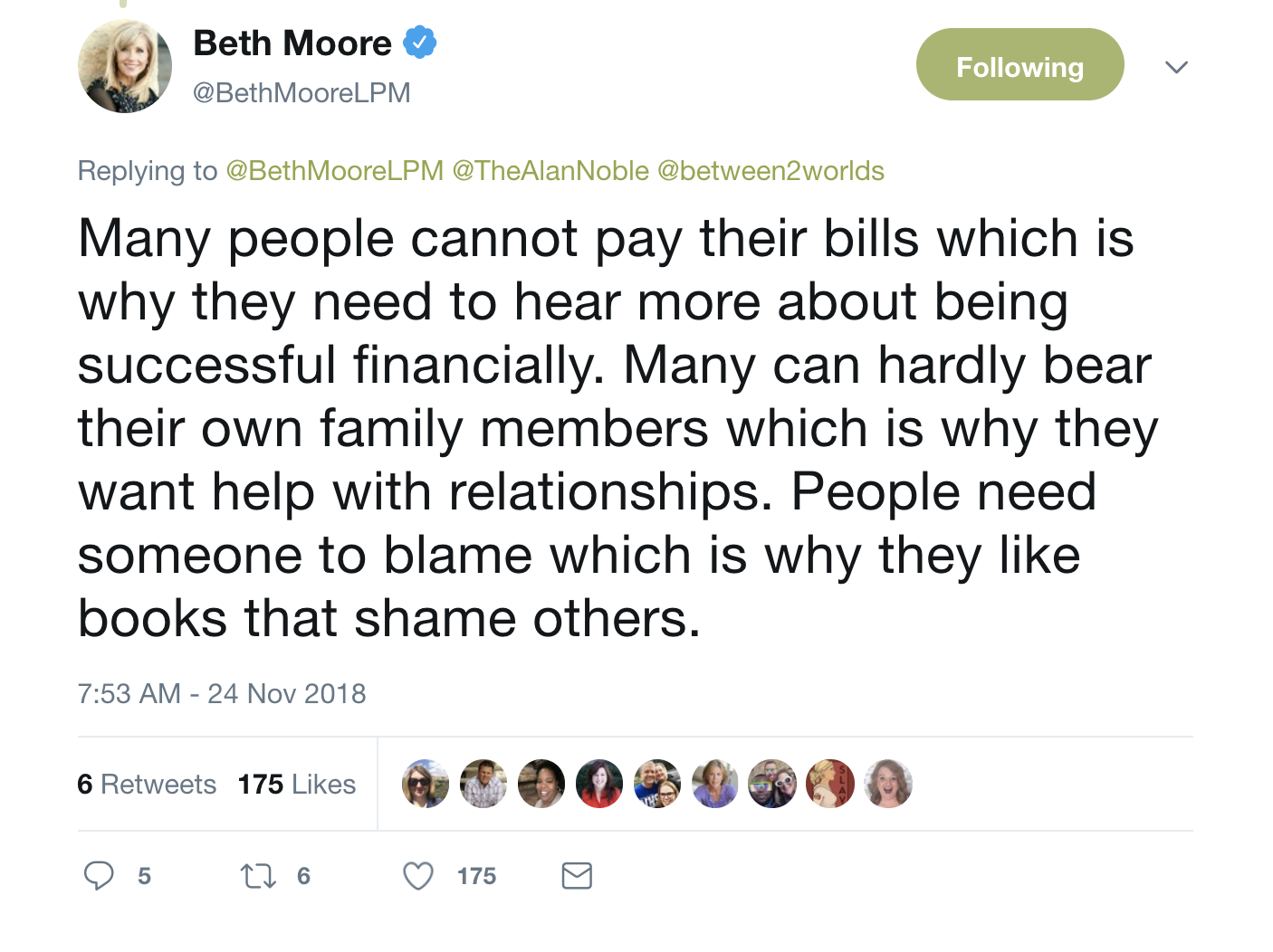
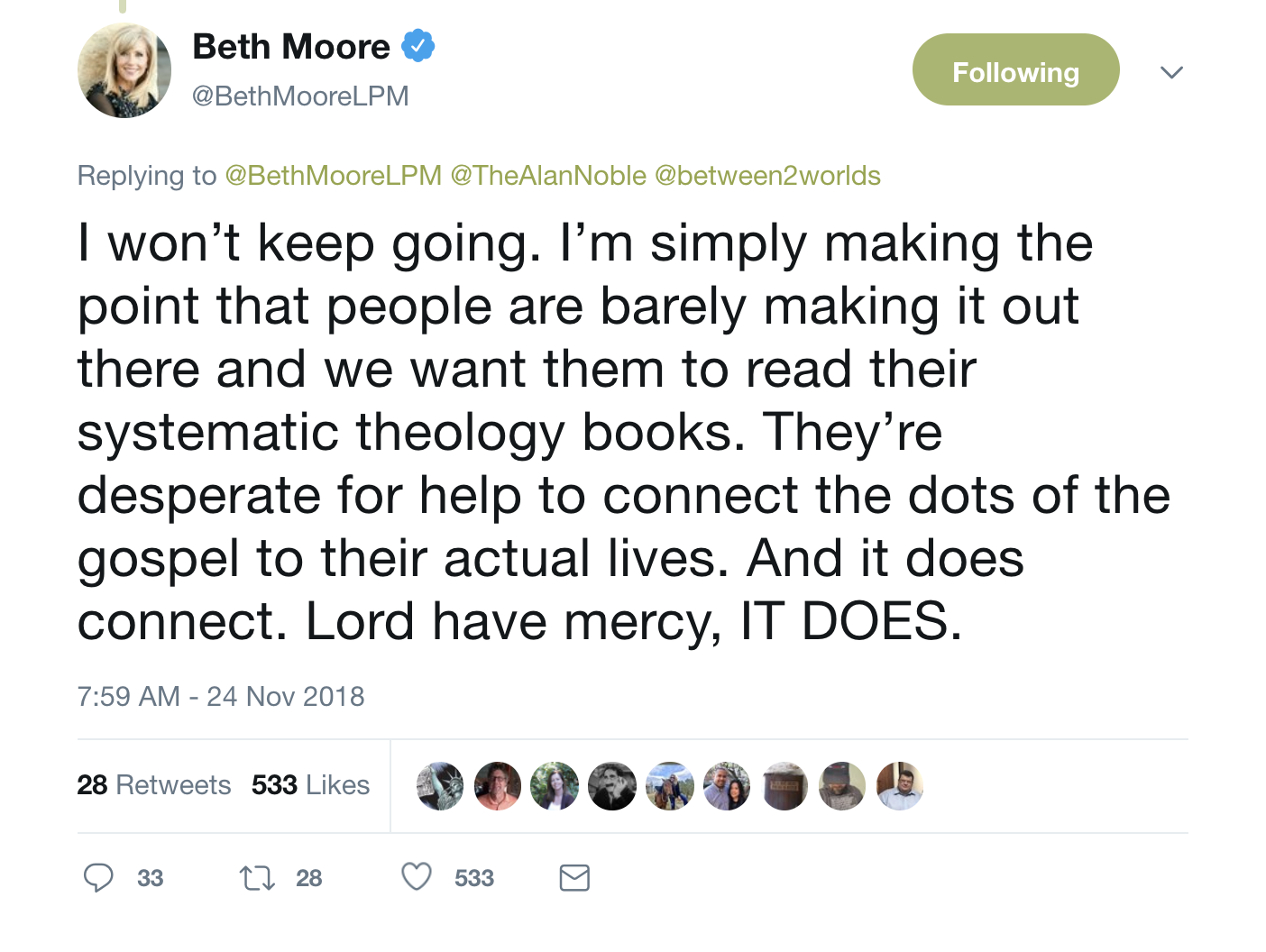
This is a huge issue to tackle. And there’s probably enough blame to go around. Readers, publishers, writers. What I believe connects Moore’s thoughts to what Bowler says is a recognition of people as people. When you get to know Christians who eat up bad theology instead of good theology, you realize that the answer is much more complicated than simply throwing the Bible their way. If teaching sound theology is a coin, then we could say that information is on one side and embodiment is on the other. Do we know those we’re speaking and writing to? Do we give them just information or do we offer truth that applies to them in the everyday pains of life? This isn’t to say that truth makes people feel good, but how can we make it applicable and digestible? When it comes to preaching, I tell pastors not to dumb their information down, but to simplify and apply it. This goes for pastors, but also anyone looking to serve a friend who needs help.
I’m becoming more and more convinced that one of the biggest problems society’s faces today is that we just don’t know people. We know caricatures, avatars, but we don’t know people. We are tempted to believe that everyone thinks like we do. Or—and this is a big one—should think exactly like we do. I’m not advocating for us to ignore erroneous belief. I’m talking about understanding the different ways people process and apply information.
As a writer, it always makes me sad when I come across authors who brag about writing books for the casual reader and yet only end up writing books for people just like themselves. I heard one author say this recently and I thought, “I think maybe 1% of the people in my church would finish your book.” That’s not necessarily a bad quality. We need those books. We need to encourage people to read difficult, sometimes boring, work. I do lament, however, how easy it is for myself and others to think we are speaking to the average person when we’re not.
So, here’s my advice for writers (and myself): If you want to be a good writer, you need to talk to people.







